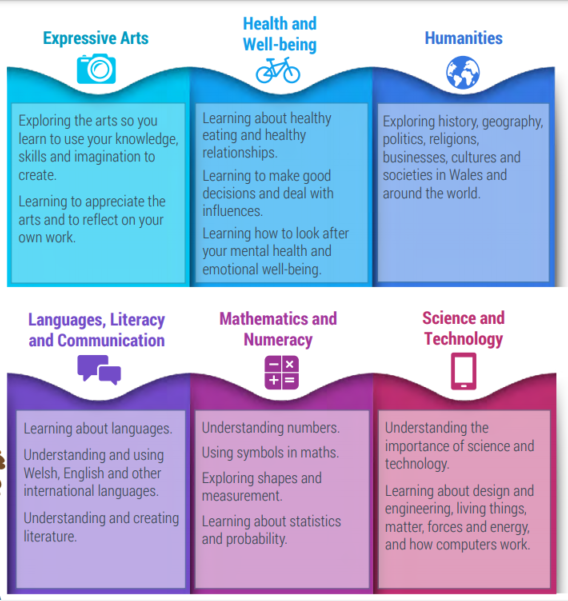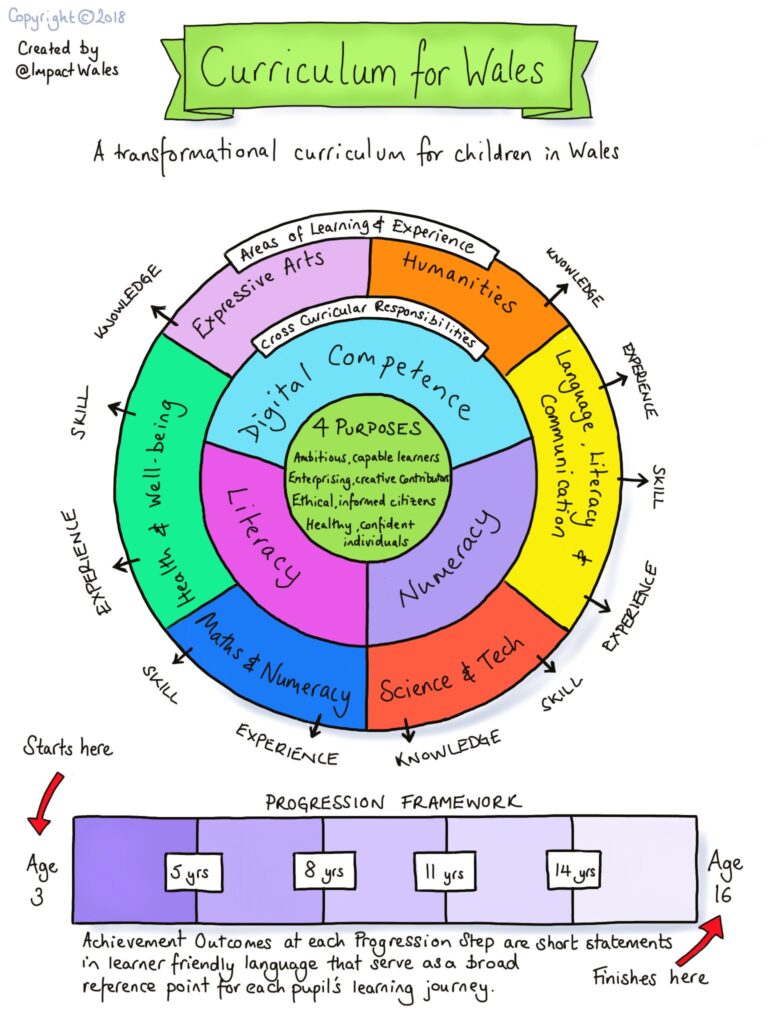New Curriculum 2022
The new Curriculum for Wales has been implemented from September 2022! The world is changing. There are lots of new challenges that will need new technology and new ideas. So, the curriculum in Wales is changing to ensure that learners have the knowledge, skills and experiences they need to succeed in the future.
The new curriculum will have more emphasis on equipping young people for life. It is a journey – it will build their ability to learn new skills and apply their subject knowledge more positively and creatively with real life meaning and experiences. Teachers will have more freedom to teach in ways they feel will have the best outcomes for their learners. They will also get a deep understanding of how to thrive in an increasingly digital world, preparing them for opportunities and risks that an online world presents.
Assessment will be built into the curriculum and will be part of everyday learning experiences. The main focus of assessment will be to ensure that learners understand where they are in their learning and what steps to take to move forward.
Please see the following link to view our Curriculum Rationale at Black Lane:
Curriculum Rationale Black Lane 2022
See below links for further details:
The Four Purposes
The ‘Four Purposes’ are at the heart of the new curriculum for Wales 2022. These have guided the whole design of the curriculum and set out the aspirations for all children and young people in Wales. They are a starting point for all decisions on the content and experiences developed as part of the curriculum.
The purpose of the curriculum is to support learners to be:
- Ambitious, capable learners ready to learn throughout their lives
- Enterprising, creative contributors, ready to play a full part in life and work
- Ethical, informed citizens of Wales and the world
- Healthy, confident individuals, ready to lead fulfilling lives as valued members of society
Areas of Learning Experiences (AoLEs)
The new curriculum is about connecting learning and ensuring that learning focuses on what matters for learners now and in the future. As well as learning the three cross curricular responsibilities: literacy, numeracy and digital skills, there will be six areas of learning and experience. Everything children learn will connect to these areas:

- Health and Wellbeing
- Language, Literacy and Communication
- Mathematics and Numeracy
- Expressive Arts
- Humanities
- Science and Technology
The curriculum will also cover:
- Human rights and the United Nations Conventions on the Rights of the Child
- Diversity and respecting differences
- Experiences and skills for careers and the workplace
- Local, national and international aspects of all learning
- Relationships and Sexuality Education (RSE)
Preparing for the new curriculum
We are very excited about the new curriculum and are already planning and preparing! We have the flexibility to design a curriculum that meets the needs of our learners and the wider community. We are already changing what we teach and how we teach. This is an important opportunity to rethink what is important to the learners and the wider community. We will build a curriculum with a vision that considers the views of learners, parents, staff, governors and the local community.
Everyone working together will help learners get the best education and prepare them for their future.


